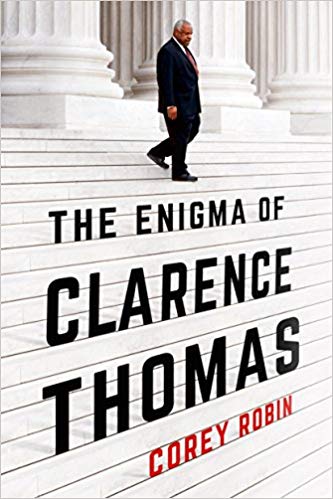The Enigma of Clarence Thomas on sale today!

The Enigma of Clarence Thomas goes on sale today, with the help of a rave review in this morning’s New York Times. In the Times, Jennifer Szalai writes:
It’s a provocative thesis, but one of the marvels of Robin’s razor-sharp book is how carefully he marshals his evidence. He doesn’t have to resort to elaborate speculation or armchair psychologizing, relying instead on Thomas’s speeches, interviews and Supreme Court opinions. Just as jurists make ample use of the written record, Robin does the same.
…
The result is rigorous yet readable, frequently startling yet eminently persuasive.
…
It isn’t every day that reading about ideas can be both so gratifying and unsettling, and Robin’s incisive and superbly argued book has made me think again.
The book was excerpted two weeks ago in The New Yorker. It also has been widely reviewed—in Bookforum, The Atlantic, Harper’s, and National Review, which, despite the criticisms, called the book “thoroughly researched and engagingly written…a valuable and overdue engagement,” and elsewhere.
You can buy the book at Amazon, or if you prefer other vendors, there’s a list here.
Enjoy—and look forward to hearing your thoughts!